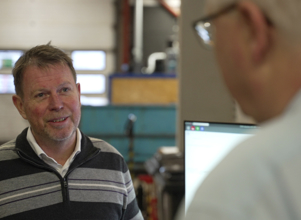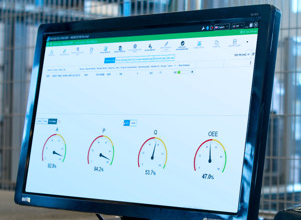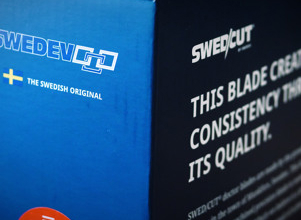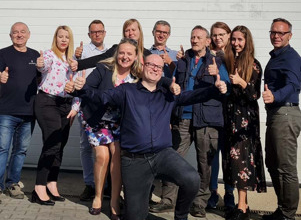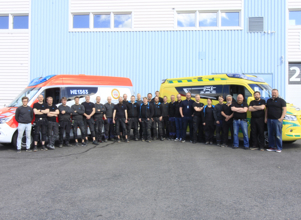
How Monitor ERP helps J5L-Production Oy with their sustainability
To strengthen its position in sustainability and the rapidly evolving business world, the Finnish company J5L-Production Oy, which manufactures specialist vehicles, realized it needed a new, powerful ERP system. After careful consideration they chose Monitor ERP.
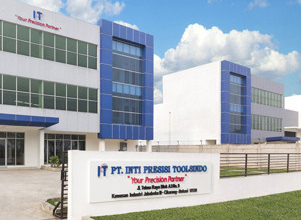
Upgraded to Monitor G5 within one month, and 100% online
Find out what Mr Lim, Director of PT. Inti Presisi Toolsindo (PT Inti), thinks about Monitor G5 and his experience of the upgrade process. PT Inti in Jakarta has been using Monitor ERP since 2015 and provides high-quality, custom-designed precision carbide tools for the aerospace, electronics, oil & gas, and automotive industries. The name PT Inti is currently synonymous with the highest quality. The company has now upgraded to Monitor G5, with the entire process, including training, taking place 100% remotely.

Business as usual for Sky Resources amid the pandemic
“We are using the Sales Forecast function to simulate the quantity and cost required in the next one or two months. This gives us foresight in our cash flow management. It also allows us to bargain for volume discount for the most consumed materials." - Mr. Lee Poh Seng, Purchase Manager at Sky Resources.
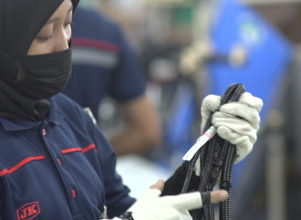
Together we achieve more with J.K. Wire Harness
In conjunction with MIDA-P2 (Malaysian Investment Development Authority) Digital Transformation Ecosystem Programme, J.K. Wire Harness Sdn. Bhd. (JKWH) has digitally transformed its business operations and processes. In order to propel to the forefront of IR4 (Industrial Revolution), JKWH needs a complete ERP system that consolidates all their business processes into one single system. With the successful implementation of Monitor G5, JKWH has improved the efficiency of its business processes.

One step closer to becoming a SMART Factory
Mah Sing Plastics Industries Sdn. Bhd. is one of the largest high-tech plastic product manufacturers in Malaysia since its incorporation in 1979. A wholly owned subsidiary of Mah Sing Group Bhd., the company is listed on the main board of Bursa Malaysia. The company supplies plastic products such as pallets, containers, boxes, furniture and more.
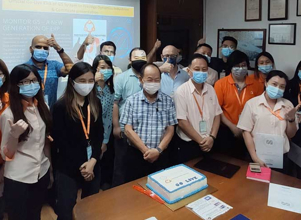
First Malaysian customer grows stronger with G5
Prestige Dynamics Industries Sdn. Bhd. (PDI) has over three decades of experience in precision injection moulding. They have a 10,000 square meter manufacturing plant in Penang, Malaysia with approximately 350 employees.
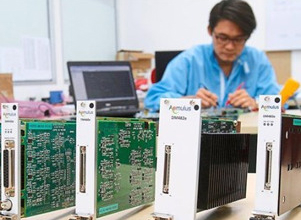
A new level of efficiency at Aemulus corporation – "Worth every single sen"
Aemulus Corporation Sdn. Bhd. designs, engineers, and develops automated equipment which tests the functionality of semiconductor devices. Its equipment is used to test functionality such as power levels, electrical behavior, analog and digital signals, and radio frequency signals. The company was founded in 2004 and is based in Penang, Malaysia.
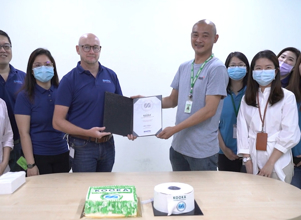
Kooka Paper successfully goes live with Monitor G5 in three weeks
July 8 marked the successful implementation of Monitor ERP system within three weeks at Kooka Paper Manufacturing Sdn. Bhd.
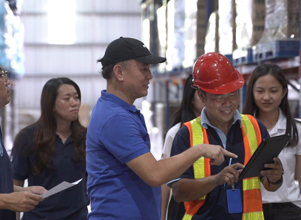
Readycare's key ingredient for automation success - Monitor's Machine Integration (MI)
At the heart of Malaysia's manufacturing landscape, Readycare Manufacturing Sdn. Bhd. stands as a testament to the transformative power of Monitor ERP and MI (Machine Integration).

Gränsfors Bruk now runs Monitor G5 – “The upgrade was seamless”
Gränsfors Bruk now runs Monitor G5 – “The upgrade was seamless”
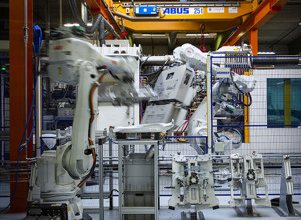
Why KB Components went for Monitor ERP
For Swedish manufacturer KB Components, changing to Monitor ERP means new opportunities, both now and in the future.
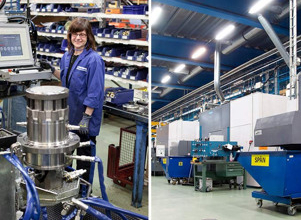
Monitor G5 the logical choice for Indexator
The group includes four other companies which have all run Monitor for several years, so when it was time to change ERP system, the choice was simple.

Alfapac chose Monitor ERP to pinpoint production
According to Financial Manager Marcus Kindevåg, Monitor is clearly a system designed for manufacturing companies. "There’s a depth to the system which we can utilize when following up our production, and in reports.”

Monitor improves Darekon's supply chain management
Join us on our tour of Darekon’s facilities, get a glimpse of their day-to-day work and see how Monitor ERP makes life easier for Darekon’s employees.

Duro steps up production with Monitor ERP
To handle a larger process flow, we needed an ERP system that was efficient, and wouldn’t cost administrative time. And we chose Monitor ERP.

More efficient manufacturing with Monitor G5: “A real boost”
National Halmstad needed a more standardized ERP system which could help it achieve its goal – a digitalized, effective process flow throughout the factory. So it chose Monitor G5.

Becoming the world’s greenest furniture company – with Monitor ERP
The Norwegian company Vestre has gone through a lot over its 75 years. Its current focus is to be “the world’s most environmentally friendly furniture manufacturer”.

Project-based manufacturing with Monitor ERP
C&D Snickeri is a manufacturer of wood interiors. Each new customer means a new project with new products. “It's important for us that the ERP system can manage the rapid flow of parts and products that pass through our doors,” explains site manager Emil Carlson.
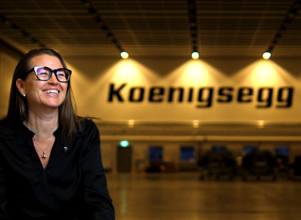
The key to a successful upgrade
With new car models and new factories in the pipeline, Koenigsegg needed a new ERP system. An upgrade is a major project. But Koenigsegg swiftly moved through the gears.
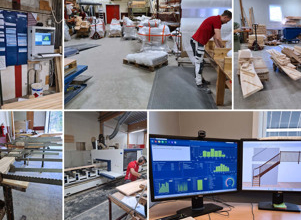
Monitor ERP – a savior in times of need for Olssons Trappor
After a year of pandemic and uncertainty, co-owner Kim Olsson talks about the company’s rewarding journey with Monitor.
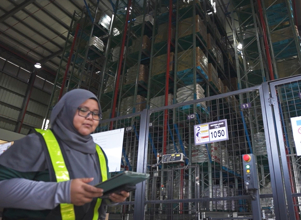
Synerchem Group transforms manufacturing efficiency with Monitor ERP
In the competitive landscape of manufacturing, seamless integration and efficient management systems are paramount for success. Synerchem Group, a leading player in the food industry, recognized this need and embarked on a transformative journey with Monitor ERP.

Effective time recording – a necessity for Borins AB
For the Swedish company Borins AB, which is known for its broad range of high-quality products and services, Monitor’s TimeCard plays an essential role. By using TimeCard, Borins AB’s employees can easily record their working hours directly on specific work orders, which means that they no longer need to separately record different working tasks.


